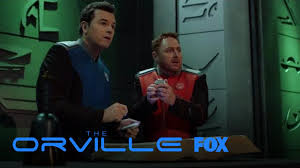On October 12, 2017 I posted a tentative but positive blog review of The Orville and told you I would update with any new insights or concerns. The very next show, "Krill," provided one. Originally I endorsed the show for mid teens and up. And while that continues to be true as far as content, visuals and violence go, I must in good conscience add a caveat. I would NOT encourage ANYone young or adult to watch who is not spiritually mature and confident.
The latest show, "Krill" while well written and in all fairness approaches the subject matter with an intelligent script, does state up front and baldly that the characters believe there is no place for religious belief in their society.
To give the writers their due – unlike a lot of other shows and movies – they do NOT disrespect or place as strawmen any Judeo-Christian philosophy or representative. 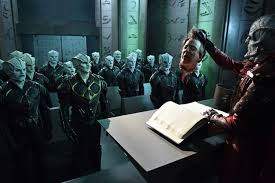 The religion they face is more of an Aztec one held by the Krill, who apparently, as the writers created them, believe that all other creatures who are NOT Krill are like animals without souls and can be treated as cattle.
The religion they face is more of an Aztec one held by the Krill, who apparently, as the writers created them, believe that all other creatures who are NOT Krill are like animals without souls and can be treated as cattle.
The premise of the episode addresses the hostilities between the Krill and the Union. During a firefight, the Orville manages with a Picard/Stargazer type maneuver to outfox and destroy a much more powerful Krill ship. They retrieve a Krill shuttle from the wreckage and 
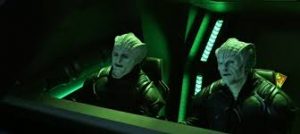 Gordon and Ed are sent undercover as Krill to retrieve a copy of the Krill sacred book, the Ankhana, in order for the Union to study and perhaps find grounds for detente between the cultures.
Gordon and Ed are sent undercover as Krill to retrieve a copy of the Krill sacred book, the Ankhana, in order for the Union to study and perhaps find grounds for detente between the cultures.
While this all sounds like serious stuff, and the topic is treated with respect, in Orville fashion there are light moments. When Ed and Gordon, in the guise of the Krill and their far bulkier uniforms, approach the bridge of the Krill ship to pay respects to the captain, they get stuck trying to go through the doorway at the same time. It’s the kind of thing that happens that you suspect would have occurred in the course of all the Star Trek shows – something that would happen to normal people. Which is why in the previous blog I suggested that The Orville is what REALLY was going on behind the sanitized version brought to us by Kirk’s Star Trek and all of its conceptual descendants.
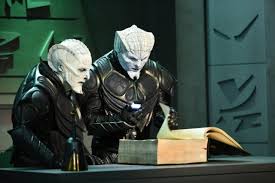 When Gordon finds out the Krill god is named Avis, the smart alec Gordon has a field day.
When Gordon finds out the Krill god is named Avis, the smart alec Gordon has a field day. 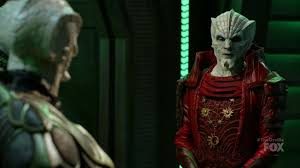 Sidestepping the question of why Gordon would know of a 400 year old car rental company as irrelevant, when confronted by the Krill spiritual leader in unauthorized perusal of the Ankhana they explain they were seeking solace on the loss of their ship, to which Gordon intones: "Oh wise and powerful Avis cover the loss of our vehicle."
Sidestepping the question of why Gordon would know of a 400 year old car rental company as irrelevant, when confronted by the Krill spiritual leader in unauthorized perusal of the Ankhana they explain they were seeking solace on the loss of their ship, to which Gordon intones: "Oh wise and powerful Avis cover the loss of our vehicle."
And yet this episode still manages to creatively and intelligently include issues on the morality of war time actions, respect for other culture’s beliefs and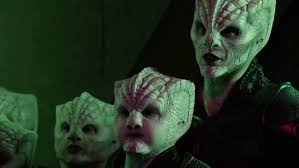 how far does one go to protect innocents in the line of fire. Heavy stuff in a show which still manages to evoke laugh out loud scenarios.
how far does one go to protect innocents in the line of fire. Heavy stuff in a show which still manages to evoke laugh out loud scenarios.
I respect people who honestly speak their minds and MacFarlane does exactly that. 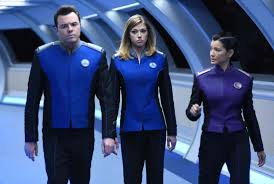 With no pussy footing around, in the course of being briefed on the Krill political situation the Union Admiral Ozawa says "…generally when a civilization becomes more technologically advanced their adherence to religion declines…" and everyone nods sagely and approvingly. Of course, this is a blind denial of the devout men upon whose shoulders those "technologically advanced civilizations" stand:
With no pussy footing around, in the course of being briefed on the Krill political situation the Union Admiral Ozawa says "…generally when a civilization becomes more technologically advanced their adherence to religion declines…" and everyone nods sagely and approvingly. Of course, this is a blind denial of the devout men upon whose shoulders those "technologically advanced civilizations" stand: 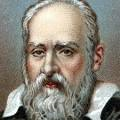 Galileo, Newton, Mendel,
Galileo, Newton, Mendel,  Pascal, Descartes, Pasteur are just a handful of the most famous superstars. And it might comes as a shock to these sadly ignorant writers that the theory of the Big Bang on which they hang so many of their hats was FIRST postulated by a Roman Catholic priest, WHILE a Roman Catholic priest –
Pascal, Descartes, Pasteur are just a handful of the most famous superstars. And it might comes as a shock to these sadly ignorant writers that the theory of the Big Bang on which they hang so many of their hats was FIRST postulated by a Roman Catholic priest, WHILE a Roman Catholic priest –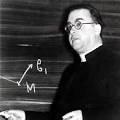 Georges Lemaitre TWO YEARS BEFORE Hubble suggested it, and whose theory was lauded by none other than Albert Einstein, who publically endorsed Lemaitre’s theory even as Hubble’s was being published.
Georges Lemaitre TWO YEARS BEFORE Hubble suggested it, and whose theory was lauded by none other than Albert Einstein, who publically endorsed Lemaitre’s theory even as Hubble’s was being published.
There are literally thousands of devout Catholic contributors to the sciences who were trained in Catholic founded and funded universities. Not to mention the devout Christian Protestant contributors NOT to mention devout practicing Jews, Buddhists, Hindus and Muslims who – all the while adhering to and practicing their faith, believing in a Divine Creator and PRACTICING THEIR RELIGION, discovered brilliant insights in every discipline: biology, astronomy, paleontology, optometry, genetics, physics, chemistry, algebra, calculus – etc. BELOW FIND A SAMPLING OF CATHOLIC SCIENTISTS AND A SMALL EXCERPT A-C FROM AN EXTENSIVE LIST OF CATHOLIC SCIENTISTS THROUGHOUT THE AGES.
Sadly, it never occurs to anyone to mention that the likes of Pasteur and Mendel were as cutting edge and "technologically advanced" for their time as the people of The Orville believe they are…or that WE, in our egotism,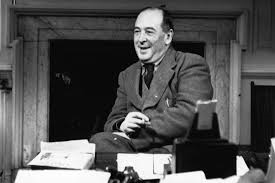 believe WE are. It is what CS Lewis might have called chronological bigotry – wherein people who are anti-theists rely on a false assumption that events and concepts closer in time to their point in history – the "NEW" – have more merit, JUST because they are "new", than those events or concepts which preceded them.
believe WE are. It is what CS Lewis might have called chronological bigotry – wherein people who are anti-theists rely on a false assumption that events and concepts closer in time to their point in history – the "NEW" – have more merit, JUST because they are "new", than those events or concepts which preceded them.
It is tragic that Mr. MacFarlane's atheism, based upon what I have read from his interviews, stems from a hero worship of Carl Sagan and the classic misapprehension that science and religion are at odds – that to believe in one you must dismiss the other. This is, of course, absurd on a number of counts, not the least of which is the Catholic Church's support – at periods in time the SOLE support – for scientific study in the West. AGAIN – CHECK OUT THE TRUNCATED LIST BELOW THEN CHECK OUT THE WIKIPEDIA.COM PAGE FROM WHICH JUST THIS SMALL ENUMERATION COMES: LAY CATHOLIC SCIENTISTS then TAKE A LOOK AT THE CATHOLIC CHURCHMEN SCIENTISTS:
Although the ethics of waging war are treated with a balanced hand, the treatment of belief in God is not. The belief in even a philosophy as nebulous as an Intelligent Designer is dismissed out of hand and assumptions are made from that premise with no counter argument.
So while I still conclude I can endorse The Orville as a clever, well written, mostly balanced view of social issues from a humorous Star Trekkian POV, I must in good conscience, temper my praise with a warning for those who are unsure of their belief system. While I commend MacFarlane for his openness on the subject, I must warn that you will find neither answers nor a constructive contribution to your search from MacFarlane’s theologically biased anti-theistic Universe-view.
IRONICALLY – as Seth MacFarlane stands against the very institutions which produced, is populated and defended by priests and churchmen who broke frontier scientific grounds aided and funded by the church – by his own words Seth MacFarlane stands against science.
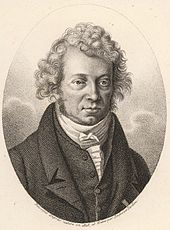 Ampere
Ampere 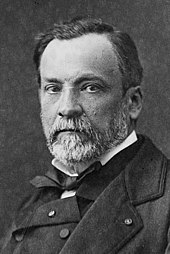 Pasteur
Pasteur 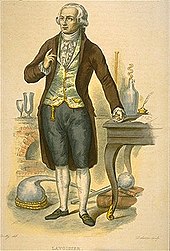 Lavoisier
Lavoisier 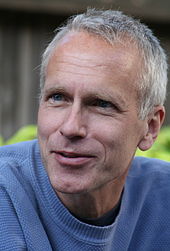 Kolbika
Kolbika 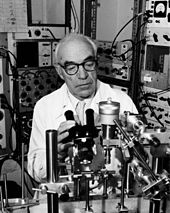 Eccles
Eccles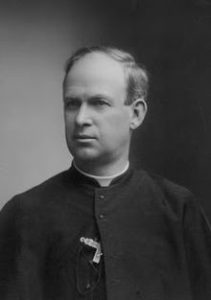 Zahm
Zahm
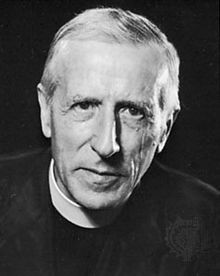 Chardin
Chardin 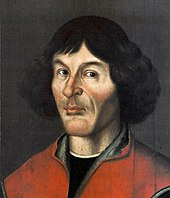 Copernicus
Copernicus 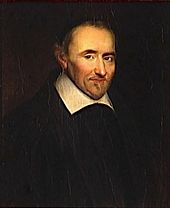 Gassendi
Gassendi 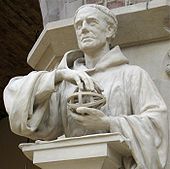 Bacon
Bacon 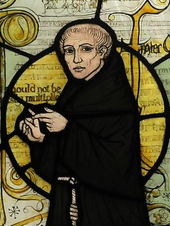 Ockham
Ockham 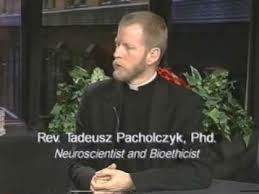 Pacholczyk
Pacholczyk 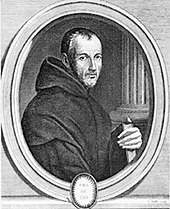 Mersenne
Mersenne
- Maria Gaetana Agnesi (1718–1799) – mathematician who wrote on differential and integral calculus
- Georgius Agricola (1494–1555) – father of mineralogy[5]
- André-Marie Ampère (1775–1836) – one of the main discoverers of electromagnetism
- Leopold Auenbrugger (1722–1809) – first to use percussion as a diagnostic technique in medicine
- Adrien Auzout (1622–1691) – astronomer who contributed to the development of the telescopic micrometer
- Amedeo Avogadro (1776–1856) – Italian scientist noted for contributions to molecular theory and Avogadro's Law[6]
- Francisco J. Ayala (1934–present) – Spanish–American biologist and philosopher at the University of California, Irvine[7][8]
- Stephen M. Barr (1953–present) – professor in the Department of Physics and Astronomy at the University of Delaware and a member of its Bartol Research Institute
- Laura Bassi (1711–1778) – physicist at the University of Bologna and Chair in experimental physics at the Bologna Institute of Sciences, the first woman to be offered a professorship at a European university
- Antoine César Becquerel (1788–1878) – pioneer in the study of electric and luminescent phenomena
- Henri Becquerel (1852–1908) – awarded the Nobel Prize in physics for his co-discovery of radioactivity
- John Desmond Bernal (1901–1971) – British pioneer in X-ray crystallography in molecular biology[9][10]
- Claude Bernard (1813–1878) – physiologist who helped to apply scientific methodology to medicine
- Jacques Philippe Marie Binet (1786–1856) – mathematician known for Binet's formula and his contributions to number theory
- Jean-Baptiste Biot (1774–1862) – physicist who established the reality of meteorites and studied polarization of light
- Giovanni Alfonso Borelli (1608–1679) – often referred to as the father of modern biomechanics
- Raoul Bott (1923–2005) – mathematician known for numerous basic contributions to geometry in its broad sense[11][12]
- Louis Braille (1809–1852) – inventor of the Braille reading and writing system
- Edouard Branly (1844–1940) – inventor and physicist known for his involvement in wireless telegraphy and his invention of the Branly coherer
- James Britten (1846–1924) – botanist, member of the Catholic Truth Society and Knight Commander of the Order of St. Gregory the Great[13]
- Hermann Brück (1905–2000) – Astronomer Royal for Scotland from 1957–1975; honored by Pope John Paul II
- Albert Brudzewski (c. 1445–c.1497) – first to state that the Moon moves in an ellipse
- Nicola Cabibbo (1935-2010): Italian physicist, discoverer of the universality of weak interactions (Cabibbo angle), President of the Pontifical Academy of Sciences from 1993 until his death
- Alexis Carrel (1873–1944) – awarded the Nobel Prize in Medicine for pioneering vascular suturing techniques
- John Casey (mathematician) (1820–1891) – Irish geometer known for Casey's theorem
- Giovanni Domenico Cassini (1625–1712) – first to observe four of Saturn's moons and the co-discoverer of the Great Red Spot on Jupiter
- Augustin-Louis Cauchy (1789–1857) – mathematician who was an early pioneer in analysis
- Andrea Cesalpino (c.1525–1603) – botanist who also theorized on the circulation of blood
- Jean-François Champollion (1790–1832) – published the first translation of the Rosetta Stone
- Guy de Chauliac (c.1300–1368) – the most eminent surgeon of the Middle Ages
- Albert Claude (1899–1983) – awarded the Nobel Prize in Medicine for his contributions to cytology
- Mateo Realdo Colombo (1516–1559) – discovered the pulmonary circuit,[14] which paved the way for Harvey's discovery of circulation
- Carl Ferdinand Cori (1896–1984) – shared the 1947 Nobel Prize in Physiology or Medicine with his wife for their discovery of the Cori cycle
- Gerty Cori (1896–1957) – biochemist who was the first American woman win a Nobel Prize in science (1947)[15]
- Gaspard-Gustave Coriolis (1792–1843) – formulated laws regarding rotating systems, which later became known as the Corialis effect
- Charles-Augustin de Coulomb (1736–1806) – physicist known for developing Coulomb's law
- Clyde Cowan (1919-1974) – Co-discoverer of the neutrino
